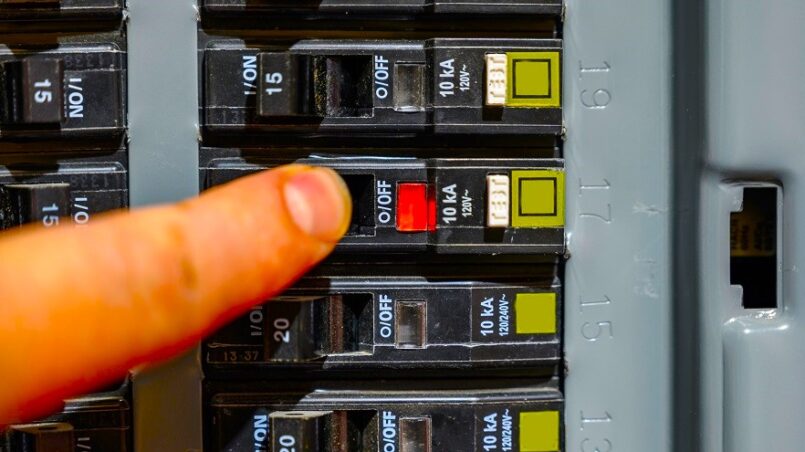The electrical system in your home works silently behind the scenes, providing power to your appliances, gadgets, and lights every day. Like any system, it can experience issues and problems. One of the most common problems you might see as a homeowner is a tripping circuit breaker. While it can seem like a minor nuisance, understanding why circuit breakers trip, recognizing signs of trouble, and knowing when to call in a professional for replacement can save you from potential hazards and ensure your home’s safety.
Why Circuit Breakers Trip
A circuit breaker is designed to protect your home’s electrical system from overloads and short circuits. When the current flowing through a circuit exceeds its rated capacity or encounters a fault, the breaker trips. That cuts off the flow of electricity to prevent overheating, fires, or damage to appliances. There are several factors that can cause a circuit breaker to trip.
Overloaded Circuit
Plugging in too many devices or appliances into a single circuit can overload it, causing the breaker to trip. This commonly occurs in older homes with fewer circuits or in areas where heavy electrical usage is concentrated. In other words, if you have too many things plugged into that power strip, you might be more likely to trip the breaker.
Short Circuit
A short circuit happens when a hot wire comes into contact with a neutral wire or a ground wire, creating a path of low resistance. This sudden surge in current triggers the circuit breaker to trip immediately, and that helps prevent electrical fires.
Ground Fault
Similar to a short circuit, a ground fault occurs when a hot wire comes into contact with a ground wire or a grounded part of the electrical system. This can happen due to damaged insulation or faulty wiring, leading to a breaker trip for safety.
Aging or Faulty Breaker
Over time, circuit breakers can wear out or develop internal faults, leading them to trip more frequently or fail to trip when needed. This can compromise the safety of your electrical system, and you’ll want to have those breakers replaced.
Signs Your Circuit Breaker Needs Repair
While the occasional trip of a circuit breaker is normal, frequent or persistent tripping is a sign of underlying issues that require attention. Some signs that your circuit breaker may need repair include frequent tripping, burn marks or electrical smells, a breaker that trips when there’s no load on it, and a breaker that’s hot when you touch it. If you notice any of those issues in your home you should contact an electrician for professional circuit breaker replacement.
Why Professional Replacement is Essential
While you might be tempted to replace a circuit breaker on your own to try to save money, it’s essential to recognize the risks involved. Working with electricity is inherently dangerous, and improper installation or handling can lead to electric shocks, fires, or serious injuries. Professional electricians have the training, experience, and equipment to perform replacements safely and efficiently, which will minimize the risks to you and your home.
Code compliance is another important reason to use a professional. Electrical work must comply with local building codes and regulations to ensure the safety and quality of your home’s electrical system. Professional electricians are familiar with these codes and will ensure that the replacement is done correctly and up to code.
Sometimes, a tripping circuit breaker is just a symptom of a larger issue within your electrical system. Diagnosing the root cause of the problem and addressing any underlying issues to prevent future problems is critical. Plus, electricians typically offer warranties or guarantees on their work, providing you with peace of mind and reassuring you that the replacement is covered in case of any issues.
Make Sure Your Circuit Breakers Are in Good Shape
A tripping circuit breaker may be just a minor inconvenience, but can also be a warning sign of potential electrical problems in your home. Recognizing signs of trouble and knowing when to call in a professional for replacement can safeguard your home against hazards and ensure the continued reliability and safety of your electrical system for the long term.














